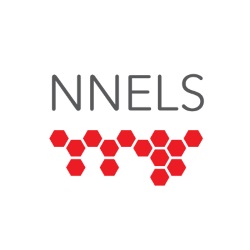
NNELS Expansion Project Highlighted by Federal Government
November 14, 2018
The Honourable Carla Qualtrough, Minister of Public Services and Procurement and Accessibility, today highlighted the work undertaken by National Network for Equitable Library Service (NNELS) to make more published works accessible to people who read using alternative formats.
Government funds library network service expansion to make more published works available in formats accessible for Canadians with print disabilities
NORTH VANCOUVER, BC, Nov. 14, 2018 – Today, the Honourable Carla Qualtrough, Minister of Public Services and Procurement and Accessibility announced the expansion of the National Network for Equitable Library Service (NNELS) through funding from the Government of Canada’s Disability component of the Social Development Partnership Program. The project will make more published works accessible to people who read using alternative formats, such as braille, e-books, or audiobooks.
Minister Qualtrough was joined by Mary Ellen Gabias, President, Canadian Federation of the Blind and representatives of the BC Libraries Cooperative for a tour of the Lynn Valley Library.
The Government of Canada is committed to ensuring the full participation and inclusion of people with disabilities in all aspects of Canadian society and it recognizes reading and learning as important rights and building blocks to achieving a truly accessible Canada.
The NNELS expansion, which began in December 2017 and is scheduled for completion by March 2019, received $2,000,000 through the Government’s Social Development Partnerships Program-Disability component (SDPP-D), a program designed to improve the social inclusion of people with disabilities.
By supporting the expansion of NNELS through the SDPP-D, the Government is going above and beyond its obligations under the Marrakesh Treaty, which Canada joined in 2016, that establishes international norms requiring countries to provide exceptions in their national laws to facilitate the availability of works in accessible formats, such as braille and audiobooks. In doing this, Canada is reinforcing its reputation as a strong and trusted international partner – one that respects the basic human rights of all its citizens, and invests in concrete outcomes in good spirit of our global treaties and cooperative agreements.
Quotes
“Expanding the NNELS’s collection of books and resources in alternative formats is a good thing for Canadians because it’s about true social inclusion and accessibility. This project demonstrates our government’s commitment to creating a barrier-free Canada where everyone can learn and succeed equally.”
– The Honourable Carla Qualtrough, Minister of Public Services and Procurement and Accessibility“Funding like this is needed to help improve the social inclusion of people with disabilities in Canada. It fosters collaboration between numerous partners and encourages innovation. Supporting accessibility through partnerships like this one is how we are helping to ensure our communities become more inclusive for all Canadians.
– The Honourable Jonathan Wilkinson, Member of Parliament for North Vancouver“Technology is making “out of the box” accessibility of books an increasingly realistic goal. NNELS helps bridge the chasm between the current “book famine” for blind people and our dream of fully integrated and accessible library service. This Federal support enables NNELS’ work to continue to grow.”
– Mary Ellen Gabias, President of the Canadian Federation of the Blind (CFB)Quick Facts
- The Social Development Partnerships Program helps to improve the lives of children and families, people with disabilities and other vulnerable Canadians. The SDPP has two funding components: Disability, and Children and Families.
- Since the creation of the Disability component of the Social Development Partnerships Program in 1998, the Government of Canada has provided $11 million annually in grant and contribution funding to organizations to support projects intended to improve the participation and integration of people with disabilities in all aspects of Canadian society with respect to social inclusion.
- In 2012, about 14 percent of the Canadian population aged 15 years or older—1 in 7 Canadians—reported having a disability that limited their daily activities. That number is expected to grow with an aging population.
Add a new comment